news
Alleged N20tn Fraud : Tinubu suspends Emefiele with Immediate effect and orders CBN probe
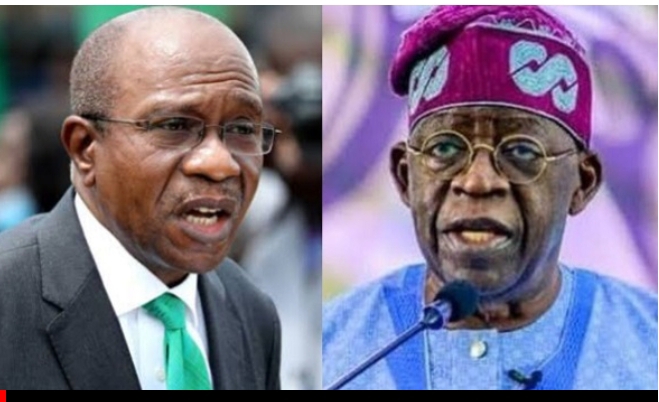
 President Bola Tinubu has suspended the Governor of the Central Bank of Nigeria, Mr Godwin Emefiele, from office with immediate effect.
President Bola Tinubu has suspended the Governor of the Central Bank of Nigeria, Mr Godwin Emefiele, from office with immediate effect.
This is sequel to the ongoing investigation of his office and the planned reforms in the financial sector of the economy, according to a statement on Friday by the Director of Information, Office of the Secretary to the Government of the Federation, Willie Bassey.
According to the statement, Emefiele has been directed to immediately hand over the affairs of his office to the Deputy Governor (Operations Directorate), who will act as the CBN governor pending the conclusion of the investigation and the reforms.
The CBN listed the Deputy Director, Operations Directorate, as Mr Folashodun Adebisi Shonubi.
Unconfirmed reports emerged late on Friday that operatives of the Department of State Services had arrested the suspended CBN governor. But the spokesman for the DSS, Peter Afunaya, told one of our correspondents that he could not confirm the arrest.
A top security source, who spoke on condition of anonymity, told Our correspondence that Emefiele would have been arrested during the administration of former President Muhammadu Buhari.
He said, “Yes, expect that (his arrest) to happen. He would have been arrested before but the administration of former President Buhari protected him. He has many questions to answer.
“As a result of this, he won’t be allowed to either travel out or sneak out of the country. So, we are looking for him.”
Emefiele, who was appointed the apex bank’s governor on June 4, 2014, was also at the centre of a storm in January 2023 when security operatives attempted to arrest him over allegations of terrorism financing and economic crime.
Section 11 of the CBN Act, 2007 gives the President power to terminate the appointment of the apex bank governor, but such must have the backing of lawmakers.
“The CBN governor can be removed by the President provided that the removal of the governor shall be supported by two-thirds majority of the Senate praying that he be removed,” the section stated.
The Act also states that the governor, deputy governor, or director of the CBN can be removed if they are serving as a lawmaker or a director of a bank.
“A person shall not remain a governor, deputy governor or director of the Bank if he is a member of any federal or state legislative house; or if he is a director, officer or employee of any bank licensed under the Banks and Other Financial Institutions Act.”
The CBN Act further states that criminal offences and mental health conditions can result in the CBN governor’s termination of appointment.
“The governor, deputy governor or director shall cease to hold office in the Bank if he becomes of unsound mind or, owing to ill health, is incapable of carrying out his duties: is convicted of any criminal offence by a court of competent jurisdiction except for traffic offences or contempt proceedings arising in connection with the execution or intended execution of any power or duty conferred under this Act or the Banks and Other Financial Institutions Act,” the Act adds.
The governor can also be removed if he “is guilty of a serious misconduct in relation to his duties under this Act; disqualified or suspended from practising his profession in Nigeria by order of a competent authority made in respect of him personally; becomes bankrupt.”
Emefiele’s ‘sins’
The introduction of the naira redesign policy by the Emefiele-led CBN in October 2022 started on a controversial note as the then Minister Finance, Budget and National Planning, Zainab Ahmed, kicked against it barely 48 hours after it was announced.
Ahmed had stated that her ministry was not consulted and she was not aware of the monetary policy.
The reaction generated tension and uncertainty until the Presidency confirmed that Buhari approved the policy, which it said was to manage inflation, combat currency counterfeiting and ransom payment.
Early January 2023, the CBN started a cash swap programme in various local government areas to reach citizens in rural communities, who complained of the unavailability of banks in their localities.
The initial deadline of January 31, 2023, set by the apex bank for the old notes to cease being legal tender was moved to February 10, as the country fell into hard times with both the old and new naira notes going out of circulation.
The situation was compounded by fuel scarcity across the country as Nigerians berated the policies of the government as ill-thought.
Tinubu, who was then the presidential candidate of the All Progressives Congress, also slammed those behind the naira redesign, which he said was targeted at his candidature.
While speaking in January during a campaign at the MKO Abiola Stadium in Abeokuta, the Ogun State capital, Tinubu said, “Let fuel be expensive, only they know where they keep it. Keep petrol, keep the naira, we will vote and be elected. You may change the ink of naira notes. What you expect will not happen. We will win.
“They said petrol will rise to N200/litre and N500/litre, let your mind be at rest. They don’t want the forthcoming election to hold. They want to scatter it but that won’t be possible.
“They thought they could cause trouble; they sabotaged fuel but with or without fuel, with or without motorcycles and tricycles, we will vote and win. This is a superior revolution.”
In February, the governors of Kaduna, Kogi and Zamfara states took the Federal Government to the Supreme Court and urged it to declare the naira redesign illegal.
Despite an initial order of the court for the policy to be suspended, the CBN went ahead to announce that the old naira notes had ceased to be legal tender at the expiration of the February deadline.
In March, the Supreme Court finally ruled that the old naira notes remain legal tender till December 31, 2023, effectively ending the controversies surrounding the matter.
Experts estimated the loss to the failed naira redesign policy at N20tn as many called for the sacking of Emefiele. Many citizens died during protests against the policy, while many commercial banks had their facilities destroyed.
Prior to the naira redesign controversy, many Nigerians, particularly members of civil society and the media, had called for Emefiele’s sacking over his rumoured political ambition.
A group of friends had in May 2022 bought the N100m expression of interest form for the presidential ticket of the APC for him.
This was followed by sponsored posts on various media platforms advertising his candidacy.
Photos of hundreds of branded vehicles were also splashed on social media, attracting widespread outrage.
Emefiele had subsequently instituted a suit against the Independent National Electoral Commission and the Attorney-General of the Federation and Minister of Justice over his eligibility to contest the APC primary.
He asked the court to stop INEC from disqualifying him from participating in the primary election of his preferred political party.
Suspension expected – Analysts
An economist, Mr Ade Dayo, said the suspension was expected, adding that the Nigerian economy suffered under Emefiele.
He told our correspondence that the monetary policies postulated by Emefiele made many Nigerian businesses shrank and gasped for air.
Dayo said, “It was expected that the new President would let him go. See the gruesome way he (Emefiele) handled the naira redesign policy! Many businesses were shut down during that period. All the pleas from economists, analysts and social critics fell on deaf ears. He was fixed on only doing his bidding.
“Whoever is going to take over after him should be one who listens and is devoid of partisan affiliation. The office of the governor of the CBN is not a political office.
“A thorough probe should be instituted and a competent person made to man the position.”
Another economist, Mr Usman Musa, noted that the suspended CBN governor did not handle the economic issues affecting the nation wisely.
He added that there were many accusations of partisanship regarding Emefiele, but he failed to address the issue as he should.
Musa said, “The economy of this country suffered under Emefiele. Surprise is the last thing I feel hearing the news of his suspension. He should be thoroughly investigated, especially as regards the naira redesign policy. Where are the new notes he said he printed?
“Emefiele completely failed in his duty. He did not concentrate on his core mandate of price stability as the apex bank’s governor. We are talking of an inflation rate of about 22.24 per cent or more and an exchange rate nearing N800 per dollar. Who should be held responsible for all these woes if not him?”
The Director and Chief Executive Officer, Centre for the Promotion of Private Enterprise, Dr Muda Yusuf, said the suspension did not come to him as a surprise.
Yusuf said the President had made it known during his campaign that he did not agree with some of the policies of the CBN governor.
He said, “Emefiele came up with a lot of policies that have not worked well for the economy and Tinubu singled out the exchange rate management, the forex policy and expressed displeasure about the naira redesign. He was very clear about his condemnation of it, and that the policy was too harsh for the citizens.
“It was also clear that the policies of Emefiele were not compatible with that of the President, so if this has happened, I will not be surprised. Their monetary policy beliefs are fundamentally different.”
A policy analyst, Suraj Oyewale, said Emefiele’s performance as governor of the apex bank had fallen below expectation, adding that many Nigerians would be happy to see him leave office.
“The general consensus is that the performance of the economy under Emefiele has been less than impressive, especially the naira redesign policy, which was not well thought out. I’m sure many Nigerians will be excited to see him leave,” he said
Oyewale, however, said it was the second time in 10 years that a sitting CBN governor would be suspended by the President and feared that the trend might “weaken the independence of the CBN.”
“Subsequent governors may become a pun in the hands of the executive for fear of being sacked and will be unable to take tough decisions that will favour the economy,” he added.
A lecturer and political analyst, Dr Ganiu Bamgbose, said the President made a great decision by suspending the CBN governor, whom he accused of holding the country hostage economically.
He said, “I think the President as the Commander-in-Chief of the Armed Forces is at liberty to choose who is returning and whosoever he wants in his space.
As a president, who is prepared to lead the country to success, he could have seen what no one else sees. In this case, as the Commander-in-Chief of the Armed Forces, he knows who is suitable for a post and who is going to make his administration successful.
“Emefiele should have been relieved of the job earlier than this. Isn’t it ridiculous that the CBN suddenly told us that there was no money to sustain the change of currency, which brought so much agony and hardship to the country about five to six months ago?”
A political analyst, Kamilu Fage, said it was surprising that the President left the CBN governor in office for some time after the swearing-in despite several infractions Emefiele committed prior to the election.
“Given what Emefiele did with the scarcity of naira, I am surprised that the President left him in the office till now given all he did during the naira crisis,” he said.
However, a human rights lawyer, Inibehe Effiong, said the suspension of the CBN governor was not in accordance with the law, adding that Emefiele could not be removed by the President without recourse to the law.
He said, “It is quite a controversial issue. Ordinarily, by virtue of Section 11 of the CBN Act of 2007, the cessation of office of the CBN governor for misconduct on account of the decision of the President can only be through removal, which has to go through the Senate and two-third of members must give their concurrence before the CBN governor can be removed. That statutory position is enshrined to guarantee the institutional independence of the CBN.
“I personally believed that Emefiele should not remain in office; he has committed several infractions, and I am not comfortable with the way he led the bank; however, on the basis of law I do not think the President can remove the CBN governor without recourse to the Senate.”
A Senior Advocate of Nigeria, Norrisson Quackers, said the President had the constitutional right to give the directive, stating that the suspension could not be questioned.
Quackers added that Emefiele had overstayed the five-year statutory period he was supposed to use in office according to the CBN Act, adding that Tinubu’s body language towards the suspension could eventually result in a further dismissal of the governor.
An economist, Prof Sheriffdeen Tella, said Emefiele should not see his suspension as shocking, having thrown the economy into domestic shocks through inconsistent policies, some of which led to the death of some Nigerians.
He said, “The suspension should not be surprising even to himself. He has over time thrown the economy into domestic shocks through policy inconsistency and summersaults without an apology to anybody, even to the government he is embarrassing.
“The last ditch was the twin policy of cashless economy and currency redesign that resulted in the death of Nigerians, collapse of businesses and loss of faith in banking services.”
Suspension legal – Ozekhome
A Senior Advocate of Nigeria, Chief Mike Ozekhome, said Tinubu had the right to suspend Emefiele, adding that the term suspension was just a euphemism for dismissal.
He stated, “The President has all the right to suspend the CBN governor despite the independence of the apex bank. He can do so under the CBN Act. He is the overall boss and President of Nigeria.
“This is what we call the transient nature of power. Before Emefiele, there was Sanusi. The position is not hereditary. He who has the power to appoint can suspend. It is Tinubu’s right and prerogative to suspend the CBN governor for any infraction. He acted in line with the law. It is not illegal.
“Someone must have been appointed to act in his place so there is no illegality there.”
Like Sanusi, like Emefiele
On February 20, 2014, President Goodluck Jonathan ordered the suspension of the then CBN governor, Lamido Sanusi, weeks after he exposed the alleged theft of at least $20bn by officials of the petroleum ministry.
Sanusi was suspended while on an official assignment to Niamey, Niger Republic.
He later claimed to have ignored Jonathan’s directive to him to resign because the reason for the directive was baseless.
He said Jonathan asked him to quit for allegedly sending copies of the letter he wrote to the President to former President Olusegun Obasanjo and the then Rivers State governor, Chibuike Amaechi.
The spokesperson for the then President, Dr Reuben Abati, explained in a statement Sanusi was suspended because of reports by the Financial Reporting Council of Nigeria claiming that the CBN governor had engaged in “financial recklessness and misconduct” but did not identify any particular financial crime.
Sanusi, who later became the Emir of Kano before he was deposed, refused to back down on allegations that the Nigerian National Petroleum Corporation and the then Minister of Petroleum Resources, Diezani Allsion-Madueke, could not account for over $20bn of crude oil exports carried out by the NNPC.
He was ordered to hand over to the most senior Deputy Governor of the CBN, Dr Sarah Alade, pending the conclusion of investigations into the alleged breaches of enabling laws, due process and the mandate of the CBN.
In April 2014, he won a court case against the Federal Government after he was detained and his passport confiscated by the Department of State Services but did not return to the apex bank.
news
Alleged Coup Attempt Against Tinubu, Fraud Charges: Sylva Faces Possible Arraignment in Absentia
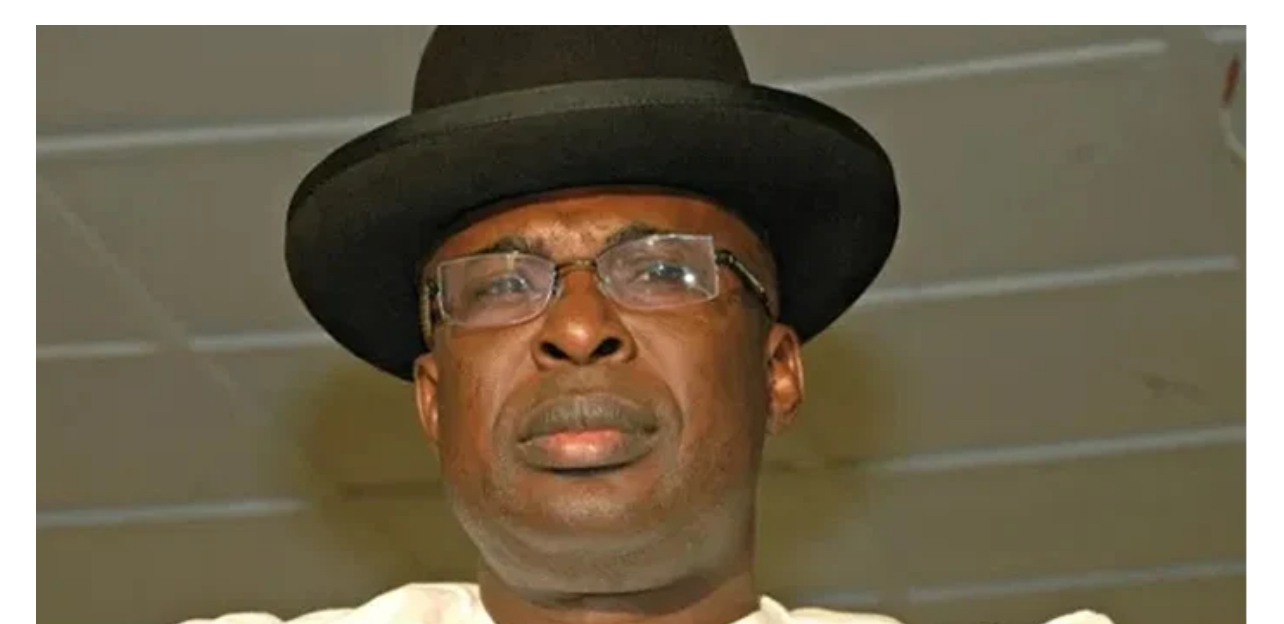
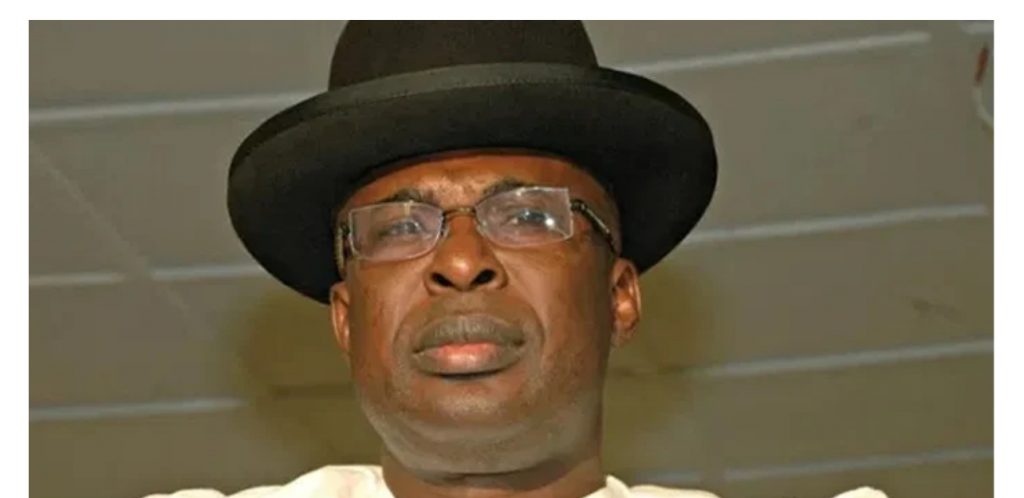
Former Bayelsa State Governor, Timipre Sylva, has yet to return to the country months after his Abuja residence was raided by operatives of the Defence Intelligence Agency.
It was reported that the raid was connected with investigations into the alleged coup attempt against President Bola Tinubu.
Our correspondence gathered that Sylva, who was also declared wanted by the Economic and Financial Crimes Commission over alleged $14,859,257 fraud, might be arraigned in absentia for financial crimes.
Top officers of the Department of State Services and the EFCC told one of our correspondents that the International Criminal Police Organisation and other Nigerian partners in the war against crime were currently trailing the former governor.
The Defence Headquarters had, in October 2025, dismissed reports of a coup attempt, despite the arrest and detention of 16 officers accused of sponsoring the plot.
The DHQ, in a statement by its Director of Defence Information, Brig Gen Tukur Gusau, on October 18, 2025, denied a Sahara Reporters story linking the detention of the officers to a failed coup and the cancellation of the October 1 Independence Day parade.
Gusau described the report as “intended to cause unnecessary tension and distrust among the populace.”
“The ongoing investigation involving the 16 officers is a routine internal process aimed at ensuring discipline and professionalism within the ranks. An investigative panel has been duly constituted, and its findings will be made public,” he said.
However, last Monday, the military backtracked, confirming that there was indeed a plot to topple Tinubu’s administration.
Presenting the outcome of investigations on the detained officers, the new Director of Defence Information, Maj Gen Samaila Uba, said the findings identified several officers with cases to answer over allegations of plotting to overthrow the government.
He said, “The findings identified a number of officers with allegations of plotting to overthrow the government, which is inconsistent with the ethics, values and professional standards required of members of the AFN.”
He noted that those indicted would be formally arraigned before relevant military judicial panels to face trial in line with the Armed Forces Act and other applicable service regulations.
Following the arrest of the 16 military officers, Sylva’s Abuja residence was raided on October 25, 2025, by operatives of the DIA.
Sylva was out of the country at the time his house was raided, but his younger brother, Paga, who serves as his Special Assistant on Domestic Affairs, along with his driver, was arrested during the operation.
Also, the former governor was declared wanted on November 10, 2025, over an alleged case of “conspiracy and dishonest conversion” of $14,859,257, part of funds injected by the Nigerian Content Development and Monitoring Board into Atlantic International Refinery and Petrochemical Limited for the construction of a refinery.
However, Sylva’s Special Assistant on Media and Public Affairs, Julius Bokoru, dismissed reports linking his principal to the coup plot, describing them as baseless and politically motivated.
He described the reports as the handiwork of “desperate and self-seeking politicians seeking to actualise their ambitions ahead of the 2027 elections.”
In a statement, Bokoru condemned the EFCC’s action, noting that the former minister was undergoing medical examination in the UK and would honour the commission’s invitation upon his return to Nigeria.
However, three months after being declared wanted, Sylva has yet to return to the country.
Our Findings revealed that the EFCC had alerted Interpol to facilitate the arrest of the former governor.
Although the Interpol spokesperson in Nigeria, Benjamin Hundeyin, who also doubles as the Force Public Relations Officer, neither answered calls nor responded to messages sent to his phone, top security officers, including DSS and police personnel, said Interpol was involved in efforts to apprehend Sylva.
“Interpol was contacted immediately after the former governor was declared wanted. Apart from the EFCC, the service is also after him. He can’t hide forever. He should submit himself for investigation if he is indeed innocent.
“Nnamdi Kanu was out of the country for a while, thinking he was off the radar. But where is he today? We will also get Sylva,” said a DSS operative knowledgeable about the matter.
Similarly, an EFCC officer, who spoke with our correspondence on condition of anonymity because he was not authorised to speak on the matter, disclosed that Sylva would be arraigned.
“He is still on our wanted list. We are looking for the right time to arraign him. However, investigations are ongoing. We are building our case against him and, when concluded, he will be charged,” the source said.
Asked if the commission would proceed to court before his apprehension, the source said Sylva could be arraigned in absentia.
“It is possible, and the law makes provision for it. However, we have not concluded that this is the option we will take. But legally, it is possible,” he added.
Speaking with one of our correspondents, another EFCC operative urged the former governor to turn himself in.
“When a suspect of such status is declared wanted, all our partners around the world are placed on notice. Wherever he is, he will be traced. The right thing to do is to turn yourself in,” he added.
However, when contacted last Thursday, Sylva’s spokesperson declined to comment on the matter.
“Given the confirmation by the Defence Headquarters, this is now a national security matter. I am not in a position to comment on speculations, travel or investigations. Relevant authorities are best placed to speak when appropriate,” Bokoru said in a text message.
news
Nigeria and Türkiye Agree to Accelerate Trade, Energy and Defence Partnerships, Says Tinubu
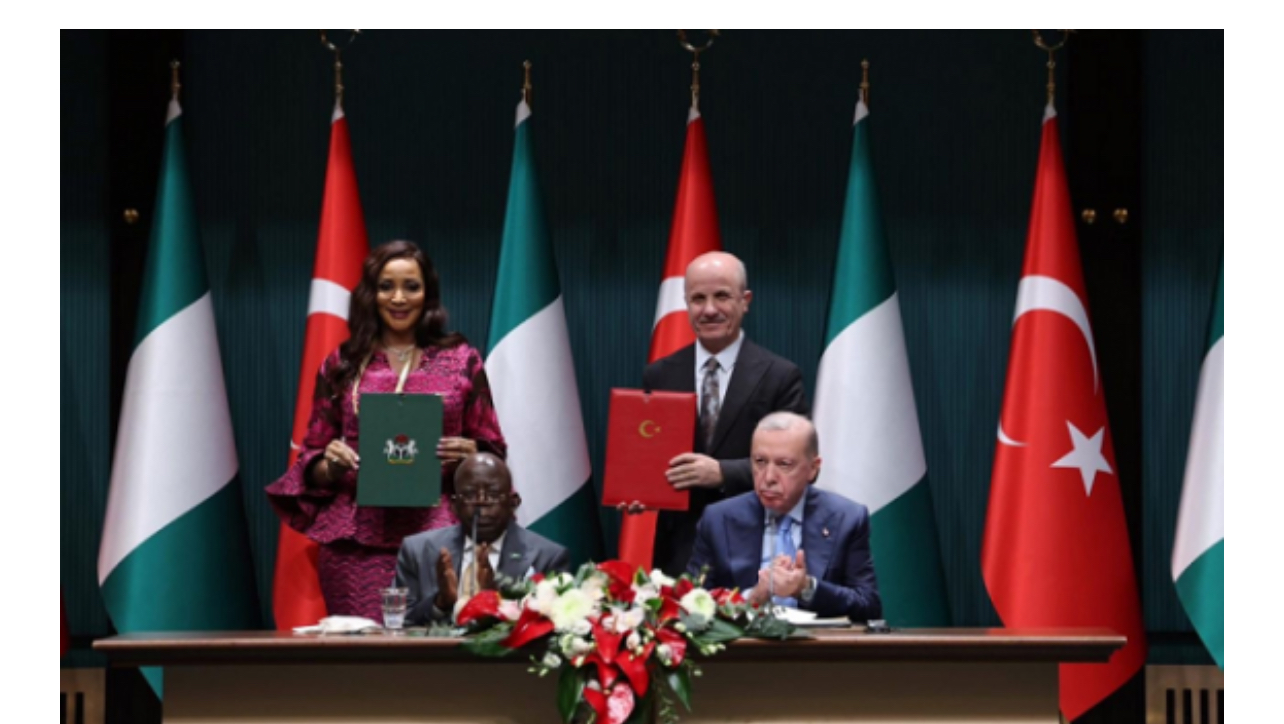
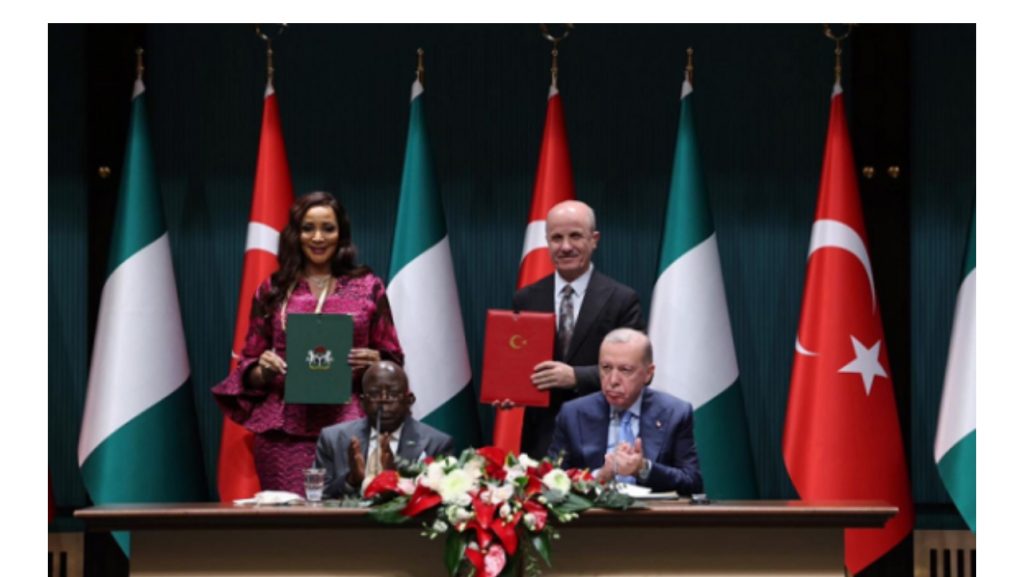 President Bola Tinubu says Nigeria and Türkiye have agreed to fast-track cooperation in trade, energy and defence to boost jobs, investment and shared prosperity.
President Bola Tinubu says Nigeria and Türkiye have agreed to fast-track cooperation in trade, energy and defence to boost jobs, investment and shared prosperity.
The President disclosed this on Tuesday via his official X handle during his ongoing State Visit to Ankara, Türkiye.
Tinubu said discussions with Turkish President Recep Tayyip Erdoğan focused on deepening bilateral relations and delivering tangible economic benefits for citizens of both countries.
“President Recep Tayyip Erdoğan and I reaffirmed our shared ambition, which speaks directly to jobs, investment and opportunity for our people,” the President said.
He said both leaders agreed on the need to expand trade volumes and remove structural barriers limiting business growth between Nigeria and Türkiye.
“We are creating a clear pathway to a five-billion-dollar trade volume between Nigeria and Türkiye,” Tinubu stated.
The President described the talks as practical and forward-looking, driven by mutual interests and shared regional and global responsibilities.
“Our conversations were practical and forward-looking: trade and investment, energy, education, defence cooperation, peace and security,” he said.
Tinubu announced the establishment of a Joint Economy and Trade Committee to drive implementation of agreements and attract fresh investments.
“The creation of a Joint Economy and Trade Committee will unlock new flows of capital,” the President noted.
He said the committee would also support industrial growth, technology transfer and stronger private sector participation.
Tinubu welcomed President Erdoğan’s acknowledgement of Nigeria’s ongoing reforms, especially in the energy and investment sectors.
“I welcome President Erdoğan’s recognition of Nigeria’s reform momentum, particularly in the energy sector,” he said.
The President said the renewed confidence reflected Nigeria’s commitment to transparency, stability and sustainable economic growth.
“We are determined to build an economy that works for everyone, including the most vulnerable,” Tinubu added.
On regional security, Tinubu reaffirmed Nigeria’s responsibility to promote peace and stability across Africa.
“Nigeria will continue to play its role in peace and stability in Africa,” the President said.
He said Türkiye’s expertise in counter-terrorism and defence cooperation would strengthen collective responses to emerging security threats.
“Türkiye’s experience and readiness to cooperate in training, intelligence sharing and counter-terrorism strengthen our resolve,” he stated.
Tinubu said nine bilateral agreements were exchanged at the end of the meetings between both leaders.
The agreements cover defence, education, media cooperation, diaspora policy, trade facilitation, social development and institutional collaboration.
“Nigeria remains open for serious partnership. Open to trade without barriers, ideas, skills and investment that create value and shared prosperity,” he said.
Tinubu reaffirmed Nigeria’s commitment to inclusive growth, peaceful coexistence and active global engagement.
“We are building an inclusive economy. We are strengthening peace. Nigeria will continue to engage the world with confidence and clarity,” Tinubu said.
news
Strengthening Cultural Leadership to Eliminate Violence Against Women and Girls
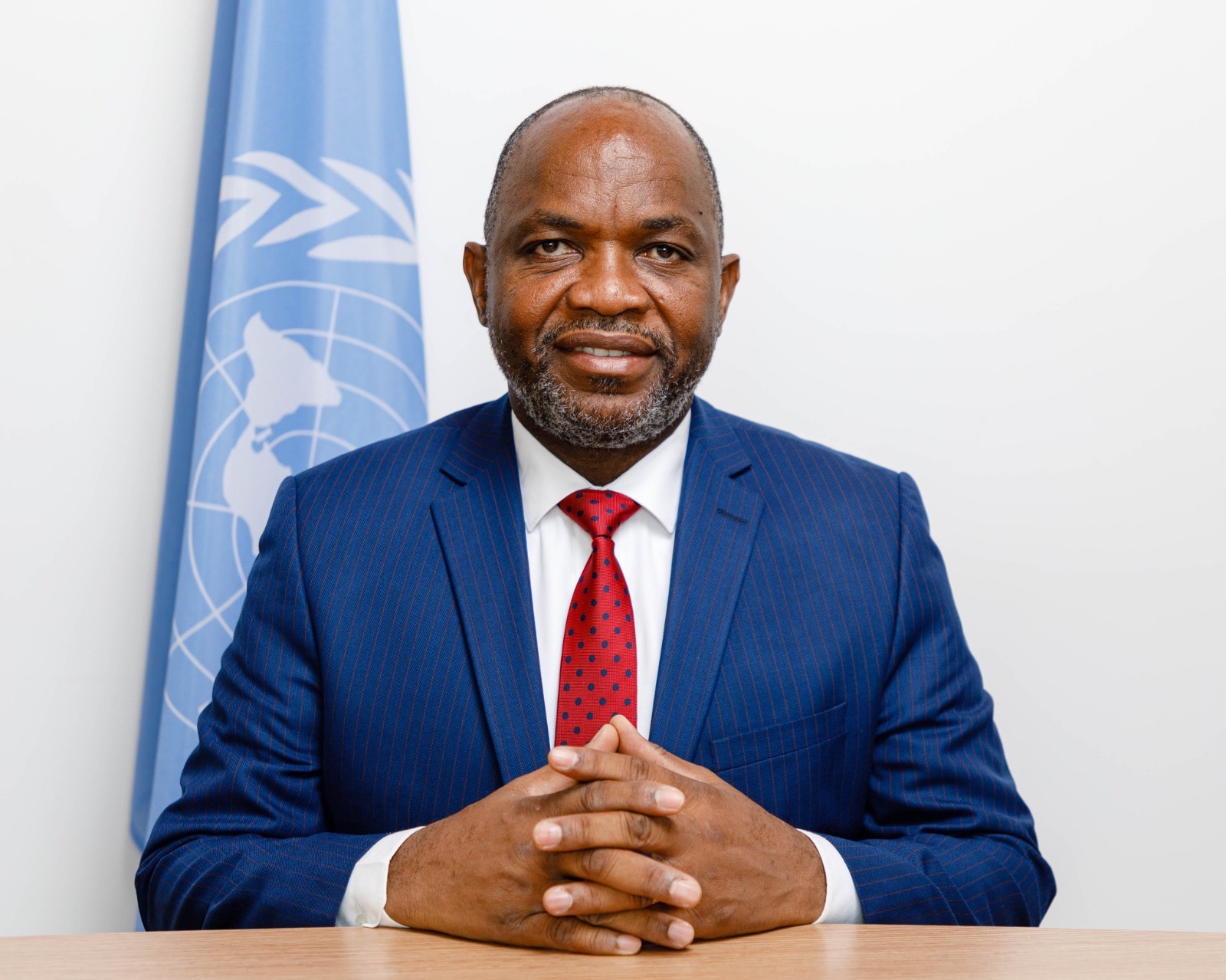
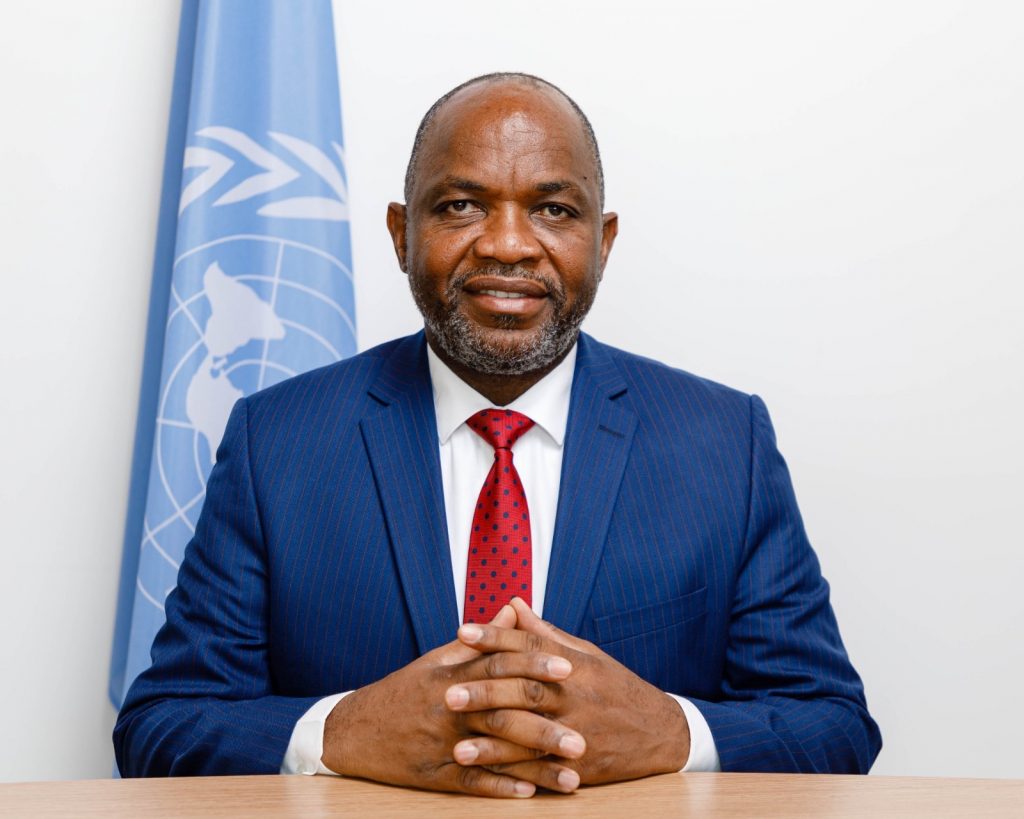
Op-Ed | By Maxime Houinato
As Africa stands at a crossroads in the fight against violence targeting women and girls, the continent’s traditional leaders hold a uniquely powerful key to unlocking lasting change. Their influence—rooted in culture, authority and community trust—positions them not just as custodians of heritage, but as essential partners in redefining norms, protecting rights and leading a continental shift toward safety, dignity and equality for every woman and girl.
In the coming week, traditional leaders from across Africa will meet in Lagos to explore how culture can advance dignity, safety, and equality. Their convening could not be timelier. Violence against women and girls remains widespread, underreported, and a major obstacle to achieving Agenda 2063 and the SDGs. Recent UN and WHO findings confirm that intimate partner and sexual violence persist at alarming levels, underscoring the need for strong, locally led prevention and accountability.
This important convening in Lagos is made possible through the valued support and partnership of the Ford Foundation, whose long-standing commitment to gender justice, human rights, and community-led solutions continues to strengthen efforts across Africa to end violence against women and girls.
Sub-Saharan Africa records some of the world’s highest rates of intimate partner violence, with studies showing that over 40% of women surveyed have experienced emotional, physical, or sexual abuse. Regional data platforms confirm that both lifetime and recent intimate partner violence remain alarmingly common. The effects also span generations: research across 37 African countries links mothers’ experiences of violence to higher risks of illness, undernutrition, and even death among children under five, highlighting IPV as a major threat to child survival and public health.
Where culture must evolve
Africa has made notable strides, yet harmful practices still put millions of girls at risk. West and Central Africa remain the global epicentre of child marriage: nearly 60 million women and girls in the region were married before 18, with Nigeria bearing the largest absolute numbers. These figures, drawn from UNICEF’s databases, remind us that while progress is possible, it is not guaranteed without sustained, community-anchored change.
There are bright spots. In Kenya, the latest Demographic and Health Survey shows FGM prevalence fell to about 15% in 2022, down from 21% in 2014, a testament to policy commitment and local norm change. Yet prevalence remains extremely high among several communities, and sustained vigilance is required to prevent medicalisation or cross-border practices.
Nigerian realities, African momentum
Nigeria mirrors the continental picture: national surveys and administrative data point to widespread physical, sexual and emotional violence, with thousands of cases reported to authorities each year, figures that almost certainly undercount the true burden. The Government’s National GBV Data Collation Tool is an important step toward standardising reporting and improving coordination; scaling it nationwide and linking it to survivor-centred services will save lives.
Encouragingly, the upcoming Conference of African Traditional Leaders in Lagos, already drawing commitments from eminent leaders, signals growing recognition that cultural authority can be mobilised to protect women and girls. UN Women’s work with traditional councils across Africa has shown that when custodians of culture publicly denounce harmful practices, backed by evidence and community dialogue, norms shift and laws gain legitimacy. It is why we helped catalyse platforms like the Council of Traditional Leaders of Africa to champion the abandonment of child marriage and FGM.
Law works best when culture leads
Africa’s legal architecture has advanced. The Maputo Protocol, our continental bill of women’s rights, has spurred reforms, and the African Commission recently moved to develop a Model Law to accelerate domestication and harmonisation across countries. These instruments matter: they provide standards, remedies and budgets. But their power is realised when interpreted through community values that affirm women’s dignity.
Evidence from the Spotlight Initiative, the EU-UN partnership with the African Union, shows that multi-sector, locally-led approaches can reduce harmful practices, strengthen services, and improve prevention. Traditional and religious leaders who champion public declarations, alternative rites of passage, and community bylaws help convert state law into lived practice.
A practical agenda for traditional leaders
I urge traditional leaders to make clear, practical commitments that have been proven to drive change: publicly and repeatedly denounce harmful practices such as child marriage, widowhood rites and FGM, backing declarations with community bylaws aligned with national law; promote survivor-centred justice in customary systems through strong referral pathways, bans on forced reconciliation, and proper case documentation; safeguard girls’ childhoods by ensuring birth and marriage registration, enforcing 18 as the minimum age of marriage, and supporting re-entry to school for married or parenting girls; encourage alternative rites of passage and positive models of masculinity that reject violence; and use their influence to push for stronger laws, adequate funding, and community engagement to address all forms of violence against women and girls.
Culture is not a relic; it is a living promise we renew with each generation. As guardians of that promise, Africa’s traditional leaders can be the champions of a continental transformation: from harmful silence to protective speech, from permissive norms to zero tolerance. If we act with urgency and unity, a life free from violence can become every African woman’s and girl’s lived reality.
Maxime Houinato is the UN Women Regional Director for West and Central Africa, providing strategic leadership across 24 countries to advance gender equality, strengthen women’s rights, and accelerate the elimination of violence against women and girls. In this role, he guides UN Women’s regional programmes on women’s economic empowerment, governance and political participation, humanitarian action, and the prevention and response to gender‑based violence.
-

 news5 years ago
news5 years agoUPDATE: #ENDSARS: CCTV footage of Lekki shootings intact – Says Sanwo – Olu
-

 lifestyle6 years ago
lifestyle6 years agoFormer Miss World: Mixed reactions trail Agbani Darego’s looks
-

 health5 years ago
health5 years agoChairman Agege LG, Ganiyu Egunjobi Receives Covid-19 Vaccines
-

 lifestyle4 years ago
lifestyle4 years agoObateru: Celebrating a Quintessential PR Man at 60
-

 health6 years ago
health6 years agoUPDATE : Nigeria Records 790 new cases of COVID-19
-

 health6 years ago
health6 years agoBREAKING: Nigeria confirms 663 new cases of COVID-19
-

 entertainment1 year ago
entertainment1 year agoAshny Set for Valentine Special and new Album ‘ Femme Fatale’
-

 news9 months ago
news9 months agoBREAKING: Tinubu swears in new NNPCL Board


